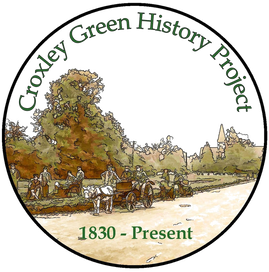Some Scouting Terminology
The Grand Howl is a ceremony used by Cub Scouts. It was devised by Robert Baden-Powell and is based on the Mowgli stories in Rudyard Kipling's Jungle Book. In the ceremony, Cubs act out the wolves greeting Akela, the "Old Wolf" at the Council Rock and are reminded of the Cub Scout Promise. Baden-Powell also created a Grand Howl for Brownie Guides, which was in imitation of an owl instead of a wolf. Grand howls may differ from pack to pack
The original instructions for the Grand Howl, described by Baden-Powell in The Wolf Cub's Handbook.
Scouter: "Pack - Pack - Pack!" This calls the Cubs into a Parade Circle. The Cubs reply as they run to their places in the circle.
Cubs: "Pack!" As the Scouter enters the circle, the Cubs squat down on their heels with their "fore paws" on the ground between their feet and their knees out on either side.
Cubs: "Ah-kay-la! We-e-e-e-ll do-o-o-o o-o-o-u-u-r BEST!" On the word "BEST", the Cubs jump to their feet with two fingers of each hand at the sides of their heads, to resemble a wolf's ears.
A Sixer: "Dyb - dyb - dyb -dyb" The word "dyb" means "Do Your Best" which is the first part of the Cub Promise and was the original Wolf Cub motto. On the fourth "dyb", the Cubs lower their left hands and the fingers of their right hands extend to form the Wolf Cub salute.
Cubs: "We-e-e-e-ll dob-dob-dob-dob", meaning "We'll do our best"
Akela – Traditional name used in some cub packs for the cub scout leader. Akela is the Leader of the wolf pack in Rudyard Kipling’s The Jungle Book.
Beaver scout – An invested member of the movement aged between 6 and 8 years.
Cub scout – An invested member of the movement aged between 8 and 10½ years.
Explorer scout - An invested member of the movement aged between 14 and 18 years.
Six/Sixer - In cub scout packs, young people are often grouped in sixes, which are lead by a sixer, who is a cub scout that has more experience and helps look after the cubs in their six.
Seconder – This is a cub scout who assists a sixer with the running of a Six in the Cub Pack.
Motto – The motto of Scouting is ‘Be Prepared.’
Woggle – Device used to hold up the scarf, worn around the neck
The original instructions for the Grand Howl, described by Baden-Powell in The Wolf Cub's Handbook.
Scouter: "Pack - Pack - Pack!" This calls the Cubs into a Parade Circle. The Cubs reply as they run to their places in the circle.
Cubs: "Pack!" As the Scouter enters the circle, the Cubs squat down on their heels with their "fore paws" on the ground between their feet and their knees out on either side.
Cubs: "Ah-kay-la! We-e-e-e-ll do-o-o-o o-o-o-u-u-r BEST!" On the word "BEST", the Cubs jump to their feet with two fingers of each hand at the sides of their heads, to resemble a wolf's ears.
A Sixer: "Dyb - dyb - dyb -dyb" The word "dyb" means "Do Your Best" which is the first part of the Cub Promise and was the original Wolf Cub motto. On the fourth "dyb", the Cubs lower their left hands and the fingers of their right hands extend to form the Wolf Cub salute.
Cubs: "We-e-e-e-ll dob-dob-dob-dob", meaning "We'll do our best"
Akela – Traditional name used in some cub packs for the cub scout leader. Akela is the Leader of the wolf pack in Rudyard Kipling’s The Jungle Book.
Beaver scout – An invested member of the movement aged between 6 and 8 years.
Cub scout – An invested member of the movement aged between 8 and 10½ years.
Explorer scout - An invested member of the movement aged between 14 and 18 years.
Six/Sixer - In cub scout packs, young people are often grouped in sixes, which are lead by a sixer, who is a cub scout that has more experience and helps look after the cubs in their six.
Seconder – This is a cub scout who assists a sixer with the running of a Six in the Cub Pack.
Motto – The motto of Scouting is ‘Be Prepared.’
Woggle – Device used to hold up the scarf, worn around the neck


